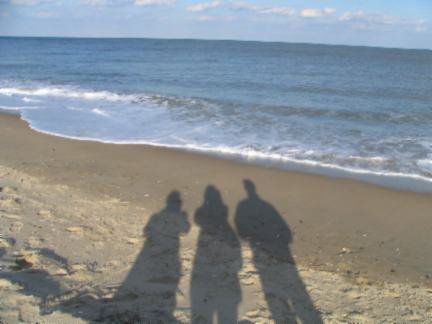There was an interesting piece of news recently about a Mexican postage stamp portraying a popular black Mexican cartoon character famous in a series of comic books. According to my husband, who is Mexican, the character, named Mimin Pinguin, is totally innocuous, very family-oriented, perhaps a bit precocious, but in general portrayed in a very positive light in the books. In the last few weeks, however, black activists such as the Rev. Jesse Jackson have been in an "uproar," suggesting that the stamp is racist and stereotypical. The Mexican government has refused to apologize, stating that the American activists don't understand Mexican culture and are totally misunderstanding the character.
I thought this was interesting, because although the character is drawn in caricature, with large lips, a large head and a lanky body, this cannot be the basis for the offense, can it? I mean, how many times are white people caricatured with big noses? Can George W. be pissed off every time a newspaper cartoonists draws him with enormous ears?! I was thinking about whether my assessment was too shallow, and if there is somehow something more sinister about caricatures of people of color than of whites. I don't know.
As a middle class child of the '80s, I was taught to treat everyone equally, but at the same time, my parents and other adults I knew growing up defined the differences between people indirectly by their comments and actions. My parents are by no means racist, but their lives are obviously much closer to the Civil Rights movement, and they can remember something from before it. I grew up in the mostly white suburbs, but have since lived in the city and have always worked with a lot of diverse people. I know I am by no means a perfectly accepting person, but I think my work experience starting in my teen years made me less quick to stereotype than perhaps my parents, who grew up in a very different Milwaukee than we live in today. This is all to say, I strive to treat people equally, although I know I don't always. I know that my gut reactions sometimes betray my good intentions, leave it at that.
I have a bit of international experience and try to keep informed about the world. In my exploration of China and indirect knowledge of Mexico, I have realized how unique the "melting pot" nature of our society is. Certainly there are similar situations in Canada and many areas of Europe, but within the U.S. literally live individuals from all over the world. There are communities all over the country of Mexicans, Chinese, Koreans, Somalians, Germans. That list doesn't even do justice to the diversity of our culture. There is no escaping colliding, co-existing cultures in any urban area today. Increasingly, there are immigrant workers in smaller and smaller towns, even rural areas of our country.
Today, my husband and I were watching a bit of Gone with the Wind on TV, and he commented that the "Mamie" character was similar to the mother of Mimin Pinguin. This took me back a bit. "Mamie" is certainly a noble, good-hearted character in the story, but also the quintessential example of the subservient, master-adoring slave, clearly disdained in one respect by most African-Americans. But as I tried to think about it from the Mexican perspective, the character became totally different. In a society where women still typically take care of the children and household, and where mothers are universally adored, "Mamie" is not a negative character at all. And Memin Pinguin is simply, like all boys, a mischevious, spirited child goofing around with his friends.
So I started to think about how the U.S. is condemning this postage stamp because "a stereotype is a stereotype" and all that jazz. And I started to think, what right do we have to do that? We are increasingly a nation of free-thinking, individualistic, excessively greedy (and overweight) people. We may like our lifestyle, but it certainly has its ups, downs and health risks. A nation like Mexico has never had a Civil Rights movement, and likely never will, because it is basically a homogeneous society of mixed Spanish and Native Indian descent. Perhaps they could come up with a more realistic drawing of Memin Pinguin, but then perhaps we should do away with Speedy Gonzalez, that old Mariachi-singing mouse with the huge sombrero. The double standard is so absurd. My husband and several of the liberal Mexicans whose comments I read online agree that the Mimin Pinguin character has helped Mexicans become less racist, as they are so extremely unlikely to ever meet an actual black person in their life. The fact that the character seems just like any regular Mexican kid with a mother similar to any Mexican mother, puts this particular "stereotype" in a new light.



